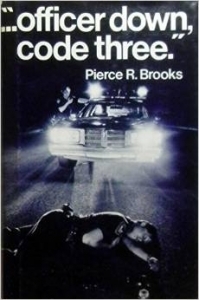Mike Worley's Blog, page 7
June 12, 2015
Retribution Revision Edits Completed
Today, I completed the ‘final’ pass-through of the revised version of “Retribution.” I’ve managed to pare nearly 15,000 words from the original story, and still keep the storyline intact. (There’s just less background on some of the minor characters and I eliminated four characters.)
I’ve also contracted with Amygdala Designs to do a new cover. Right now, we’re looking at an early-to-mid July release.
The post Retribution Revision Edits Completed appeared first on Mike Worley - Suspense/Mystery Writer.
April 25, 2015
New Free Content Added – PROVEN
Readers can now get a free sample of the draft first chapter of PROVEN, the next book in the Angela Masters Detective Novel series.
To access the free sample, go to the Free Content tab and click on the DRAFT cover for PROVEN.
The post New Free Content Added – PROVEN appeared first on Mike Worley - Suspense/Mystery Writer.
April 24, 2015
Bargain April – Award-Winning ‘Entitlement’ on Sale
The third book in our Bargain April promotion is now listed.
 From today through April 30, ENTITLEMENT, the award winning novel in the Angela Masters Detective Novel series, is on sale for only 99 cents for the Kindle Edition.
From today through April 30, ENTITLEMENT, the award winning novel in the Angela Masters Detective Novel series, is on sale for only 99 cents for the Kindle Edition.
Follow this link to get your copy today at this special price!
And, as always, I appreciate your review on Amazon.
The post Bargain April – Award-Winning ‘Entitlement’ on Sale appeared first on Mike Worley - Suspense/Mystery Writer.
April 19, 2015
Ghost – The Promo Video
Since GHOST is on sale this week for only 99 cents (Kindle version), I thought I’d repost the video from its original launch.
The post Ghost – The Promo Video appeared first on Mike Worley - Suspense/Mystery Writer.
April 17, 2015
Bargain April – Phase 2
The second book in our Bargain April promotion is now listed.
 From today through April 23, GHOST is on sale for only 99 cents for the Kindle Edition.
From today through April 23, GHOST is on sale for only 99 cents for the Kindle Edition.
Follow this link to get your copy today at this special price!
And, as always, I appreciate your review on Amazon.
The post Bargain April – Phase 2 appeared first on Mike Worley - Suspense/Mystery Writer.
April 10, 2015
Bargain April is On
Bargain April has begun!
 From today through April 16, FIRE STORM is on sale for only 99 cents for the Kindle Edition.
From today through April 16, FIRE STORM is on sale for only 99 cents for the Kindle Edition.
Follow this link to get your copy today at this special price!
And, as always, I appreciate your review on Amazon.
The post Bargain April is On appeared first on Mike Worley - Suspense/Mystery Writer.
April 8, 2015
Bargain April
Beginning April 10th, our Bargain April promotion will feature three popular titles of the Angela Masters Detective Novel series will be on sale. The sale dates will rotate by title:
Fire Storm – On sale for only 99 cents for the Kindle version – April 10-April 16
Ghost – On sale for only 99 cents for the Kindle version – April 17-April 23
Entitlement – On sale for only 99 cents for the Kindle version – April 24-May 1.
This is a great chance to try the Angela Masters series or to get that volume you haven’t read yet.
The post Bargain April appeared first on Mike Worley - Suspense/Mystery Writer.
March 30, 2015
Louisville Free Writers’ Conference
 The Louisville Free Public Library is hosting a free writers conference on April 25th, 2015. The conference will be held at the Southwest Library Branch at 9725 Dixie Highway from 10:00 am to 3:00 pm. This sounds like a good, short conference for writers of all levels. I’m registered to attend and I hope to see other local writers there.
The Louisville Free Public Library is hosting a free writers conference on April 25th, 2015. The conference will be held at the Southwest Library Branch at 9725 Dixie Highway from 10:00 am to 3:00 pm. This sounds like a good, short conference for writers of all levels. I’m registered to attend and I hope to see other local writers there.
This is the schedule sent to me today:
10:00-10:45 WALK-IN REGISTRATION
WELCOME 10:45-11:00
Community Room
SESSION I 11:00-11:55
“Writing Emotionally Authentic Characters” Presented by Katie McGarry
Community Room
How to use body language, visceral emotion, selective word usage, backstory, and setting to create characters and scenes that can cause your readers to laugh, cry and fall in love with your book.
“Synopsis, Query, Pitch” Presented by Kurt Hampe and Bethany Griffin
Computer Lab
Learn techniques for crafting a clear synopsis that you can revise into a concise query and exciting elevator pitch.
“Before and After: the Birthing of a Book” Presented by Colette Ballard
Blue Activity Room
From conception to completion, learn the process a book goes through before, during and after publication. Colette will share samples from each draft of her debut novel, Running on Empty, as well as her rejection letters and acceptance letter.
SESSION II 12:00-12:55
“Advanced Elements of Scene” Presented by Kit Alloway
Community Room
Using hilarious examples from her early writing, Kit will teach you how to create tight, cohesive, and purposeful scenes that both serve your plot’s purpose and act as individual works of art.
“Synopsis, Query, Pitch” Presented by Kurt Hampe and Bethany Griffin
Computer Lab
Learn techniques for crafting a clear synopsis that you can revise into a concise query and exciting elevator pitch.
“Psychoanalyzing Your Characters” Presented by Bill Wolfe
Blue Activity Room
Want to delve deeper into the psyches of your characters, discover what makes them tick and portray more realistic relationships? Learn techniques to discover your characters’ greatest fears, desires and all the hidden secrets of their hearts.
LUNCH 1:00-1:30
PANEL Q&A 1:30-2:30
Community Room
Join all of our guest speakers for an open-floor question-and-answer session.
FINAL SESSION 2:30-3:30
“Reduce, Reuse and Revise” presented by Kelly Creagh
Community Room
You have your novel drafted and it’s time to dig in to your first (or fifth) revision. There are as many ways to approach this daunting phase of the process as there are for drafting, but which is best for you? In this session, learn methods that will help you to determine what to keep—including your cool—what to cut, and how to remain (mostly) sane in the meantime.
The post Louisville Free Writers’ Conference appeared first on Mike Worley - Suspense/Mystery Writer.
March 25, 2015
The Ten Deadly Errors
Policing is a dangerous job. We’ve all heard that. But why is it considered so dangerous? It’s not that officers are regularly involved in shootouts. Most officers will never fire their gun in the line of duty in their entire career. In fact, most policing is routine patrolling or taking reports or investigating traffic accidents—all pretty innocuous stuff.
What makes policing dangerous is that, at any moment, the officer may be called upon to act, or react, in a life-threatening situation. The routine traffic stop that suddenly turns deadly because the car being stopped for that minor speeding violation is stolen. The stop of a jaywalker — who has just robbed a store and thinks the officer knows about it and is going to arrest him. Policing has been described as ‘hours of boredom punctuated by moments of sheer terror.’
Pierce Brooks’ ground-breaking book
In the late 1960’s, Los Angeles Police Captain Pierce Brooks, who had investigated the notorious ‘Onion Field’ murder of an LA police detective, noticed that there were a small set of errors which led to a large number of police deaths and serious injuries. He compiled his observations in a 1976 book entitled Officer Down — Code Three. These are the ten factors, the ten deadly errors, that Brooks included in his book. These are still being taught in police academies today. They provide some insight into the world of being a street police officer, patrolling in uniform in a marked police car and encountering all manner of circumstances on a daily basis.
The 10 Deadly Errors
1. Lack of Concentration: If you fail to keep your mind on the job while on patrol or carry home problems into the field, you start to make errors. It can cost you and your fellow officers their lives.
2. Tombstone Courage: Just what it says, if time allows wait for backup. There are very few instances where you should try to make a dangerous apprehension unaided.
3. Not Enough Rest: to do your job you must be alert. Lack of sleep or being sleepy can endanger yourself, the community and fellow officers.
4. Taking a Bad Position: Never let anyone you are questioning or about to stop get in a better position than you are. There is no such thing as a routine stop!
5. Not Heeding the Danger Signs: As a cop you will get to recognize ‘danger signs.’ Movements, strange cars, warnings that should alert you to watch your step and approach with caution. Know your beat and watch for what is out-of-place.
6. Failure to Watch the Hands of a Suspect: Is he or she reaching for a weapon or getting to smack you? Where else can a killer strike from, but from their hands? (This has been modified somewhat to include the axiom posited by ‘Mr. Miyagi’ – “Watch eyes. Always watch eyes.”)
7. Relaxing Too Soon: YES, the rut of false alarms are accidental or whatever. Still, observe the activity. Never take any call as routine or just another false alarm. It could be your ass on the line.
8. Improper Handcuffing: Once you have made the arrest, handcuff the prisoner correctly! See that the hands that can kill you are safely secured.
9. No Search or Bad Search: There are too many places to hide a weapon that if you fail to search you are guilty of committing a crime against other officers that will have contact with your prisoner. Many people carry weapons and are able and ready to use them on you. Never assume that the next guy or the jailer will do a ‘good’ search.
10. Dirty or Inoperative Weapon: Is your sidearm clean? How about the bullets? Did you clean your weapon since the last range? Or have you even shot or practiced drawing your weapon recently? Can you hit your target in a combat situation? You must practice faithfully and religiously.
While this list was developed for the safety of police officers, the factors can also provide a starting point for those wishing to write realistic crime novels and short stories. For example, Factor 9 – No search or Bad search – plays a key role in my next book, Proven – An Angela Masters Detective Novel.
The post The Ten Deadly Errors appeared first on Mike Worley - Suspense/Mystery Writer.
March 18, 2015
1980’s – Too Close to the Present
I recently interviewed with a literary agent. She liked the manuscript of the Angela Masters book she read. However, she made an interesting comment about the setting.
“Your books are set in the 1980’s. That’s too close to the present.”
While that may seem like a strange comment, I understood what she means. The science of criminal investigation has changed markedly in the past 30 years, but it’s sometimes hard for people to really understand how far we’ve come in that time. This has become apparent to me from some of the critiques I receive from my draft chapters. I get comments from well-meaning reviewers that demonstrate the changes of three decades.
Here are a few explanations:
DNA
“Why doesn’t Kim (the lab technician) swab for DNA?
 DNA, deoxyribonucleic acid, was first discovered in 1869 by Swiss physician Friedrich Miescher. It’s unique attributes in living things, and the double-helix construction, was first postulated in 1953 by Wilson and Crick. DNA was initially used in paternity suits, and was collected under clinical conditions. The first court introduction of DNA evidence occurred in 1986 in England. Finally, the first DNA-based conviction in the United States occurred in 1987. Tommy Lee Andrews was convicted of rape in the Circuit Court in Orange County, Florida. Andrews’ DNA matched semen traces found in a rape victim.
DNA, deoxyribonucleic acid, was first discovered in 1869 by Swiss physician Friedrich Miescher. It’s unique attributes in living things, and the double-helix construction, was first postulated in 1953 by Wilson and Crick. DNA was initially used in paternity suits, and was collected under clinical conditions. The first court introduction of DNA evidence occurred in 1986 in England. Finally, the first DNA-based conviction in the United States occurred in 1987. Tommy Lee Andrews was convicted of rape in the Circuit Court in Orange County, Florida. Andrews’ DNA matched semen traces found in a rape victim.
Therefore, in 1981-1985, the general time frame of the Angela Masters novels, DNA was not a consideration.
Protective Clothing
“You don’t mention that Angi and the other detectives would don protective plastic booties before they enter a crime scene.”
Today, and for the past twenty years or so, it has been standard for police and medical personnel entering a homicide scene to wear shoe coverings. The primary purpose of this is to protect against blood-borne pathogens, such as AIDS. However, AIDS was first identified in the United States in 1981, and not officially named until 1982. It was not until 1991 that the Occupational Safety and Health Administration (OSHA) issued regulations regarding prevention of occupational exposure by such practitioners as doctors, nurses, and EMTs. Police generally came on board following the lead of EMTs.
Again, this was not a consideration for investigators in the time of these novels. It is true that, even in the early 1980’s, detectives and others sometimes wore latex gloves. However, this practice was not universal, even within a single police agency. Also, it had more to do with avoiding direct contact with bodily fluids in general, as well as other contaminants, rather than disease protection.
The CSI
“You have Angi going into the crime scene before the CSIs even get there. She would have to wait outside until the CSIs had photographed the scene and collected and processed evidence. Then the CSI would give the detectives the ‘all clear’ to enter.”
 I’m amazed at how often this comes up in comments. It’s a good example of why many detectives hate the CSI television shows. CSIs are invaluable in processing scenes for evidence and clues, but they are not at the forefront of an investigation. Similarly, it is not the CSI’s job to interview witnesses, conduct investigations, or make arrests. In many cases, particularly in larger police agencies, CSIs are not sworn police officers. They are highly trained civilians. For example, in the Los Angeles Police Department, a CSI must hold a masters degree to process evidence.
I’m amazed at how often this comes up in comments. It’s a good example of why many detectives hate the CSI television shows. CSIs are invaluable in processing scenes for evidence and clues, but they are not at the forefront of an investigation. Similarly, it is not the CSI’s job to interview witnesses, conduct investigations, or make arrests. In many cases, particularly in larger police agencies, CSIs are not sworn police officers. They are highly trained civilians. For example, in the Los Angeles Police Department, a CSI must hold a masters degree to process evidence.
In real life, the lead investigator is completely in charge of the scene. The CSI reports to the lead investigator, not the other way around. In most cases, the lead investigator wants to get a first hand look at the ‘lay’ of the scene, with as little disruption as possible. After this initial view, in which every effort is made not to disturb the scene, then the CSIs will begin their processing.
The Result
The current state of scientific support for criminal investigations certainly adds a welcome dimension. However, the decision to place the Angela Masters stories in an earlier time, when these technologies were not available, was a conscious one.
As I noted on the opening page of my website, “The series is set in the 1980’s. Because of this, Angi and her fellow investigators do not have the advantages of DNA, modern cell phones, or other sophisticated technology. Instead, they rely on their training, instincts, and observations to solve horrendous crimes.”
The post 1980’s – Too Close to the Present appeared first on Mike Worley - Suspense/Mystery Writer.
Mike Worley's Blog
- Mike Worley's profile
- 9 followers




